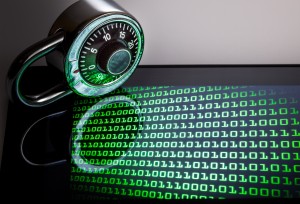In light of the recent Credit Card and Debit Card information breach, we thought we would share with you a few steps to help you if you think your information may have been compromised, as well as some tips to protect yourself in the future.
Over the past few months, companies like Target and Home Depot confirmed that their payment data system had been breached. According to Home Depot the breach could affect customers who paid with their credit card anytime since April 2014.
The most immediate risk is that the hackers will use your credit card data for unauthorized purchases. Make sure you pay close attention to your account activity and report any suspicious activity immediately to your credit card provider or bank.
Here are a few steps to take if you think your information has been compromised:
- Check you accounts for unauthorized charges and monitor them closely. There are several free tools
 available to track different financial accounts with a smart-phone or computer. Make sure you review your statements thoroughly and pay close attention to your accounts and for several months. Remember that fraudulent charges might not occur until months after your info is stolen.
available to track different financial accounts with a smart-phone or computer. Make sure you review your statements thoroughly and pay close attention to your accounts and for several months. Remember that fraudulent charges might not occur until months after your info is stolen.
- Report any unauthorized or suspicious activity ASAP. If you see anything that doesn’t look right, contact your bank or card provider immediately. Even if you don’t think your information has been compromised this is always a good practice. Keep track of the fraudulent charges in case you need them to settle disputes with your bank or card provider.
Having your information hacked or stolen can be a traumatizing experience and can cause you a lot of grief. One of the best ways to protect yourself from future attacks is by avoiding phishing scams.
A phishing scam is when someone tries to steal account information from you, usually through an email or phone call asking you to verify your account information. Scammers often ask for your email, password, and account number. Don’t fall for these scams! If someone is trying to get you to verify your account info don’t give it to them. Call the customer service number for your bank or the credit card provider and ask them if this verification email or phone call is legitimate.
Remember to be vigilant and try and avoid Phishing scams. This will help keep your personal information safe which is a very high priority for all of us.


